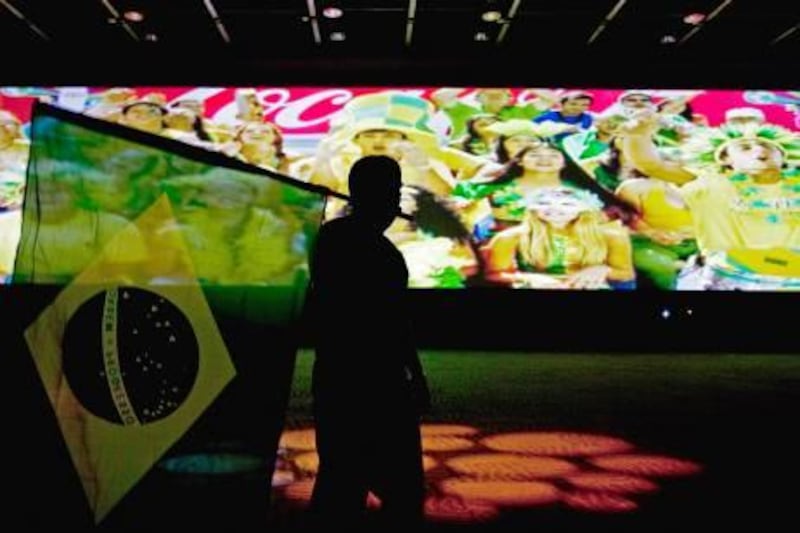AMMAN // Jordanian officials have demanded Al Jazeera provide evidence of its claims that the disruptions of regional television broadcasts of World Cup football matches last summer originated in Jordan. "We urge Al Jazeera to present proofs for these allegations and send a team of 'independent' experts and officials from the channel to investigate the matter," a Jordanian government official said according to the state-run news agency Petra. Amman is fully prepared to cooperate with the team, the official added.
Al Jazeera officials did not respond yesterday to Jordan's call for evidence. The Qatar-based satellite channel had said investigators it hired traced the jamming of the broadcast signal to a location in al Salt, a town north-east of Amman. Jordan, which said it was irritated by Al Jazeera's "repeated accusations", initially denied the allegations last week. "The government preserves the right to take legal action against all organisations and individuals who try to harm the reputation and prestige of Jordan," the official said yesterday.
Relations between Qatar and Jordan have been strained for years and the latest remarks may spark another diplomatic row. "The accusation by Al Jazeera did not come as a surprise to Jordan," said Fahed Kheitan, a columnist and editor for Arab Alyawm, an independent newspaper in Amman. "No matter how hard both parties tried to restrain themselves, it is certain that the Jordanian-Qatari ties will face a difficult test."
It would not be the first. In August 2002, Jordanian officials shut Al Jazeera's Amman office after a broadcast seen as critical of the ruling Hashemite regime. Two months later, a Qatari court sentenced a Jordanian journalist working for Qatar Television to death for espionage. King Abdullah intervened and, months later, the Qatari emir, Hamad bin Khalifa al Thani, issued a pardon. In 2006, a diplomatic row erupted over the vote for a new secretary general of the United Nations, when Qatar supported Ban Ki-moon rather than the Jordanian Prince Zeid bin Hussein, who was backed by the Arab League. Jordan withdrew its ambassador to Qatar.
And just last year, Amman was upset by an Al Jazeera report critical of the late King Hussein. "Both countries have been entangled in crises before, less significant than this, which required diplomatic intervention," Mr Kheitan said. "But this one is unprecedented." Whether the Jordanian government was involved in the jamming remains unclear, said David Roberts, the writer of the Gulf Blog. But according to Al Jazeera, the attack's point of origin is less contentious. The investigators' report provided a precise location of the source the jamming.
"If Al Jazeera does not have real evidence, that seems like one hell of a bluff," said Mr Roberts, who is writing his doctoral dissertation on Qatari foreign policy at Durham University in the UK. "The evidence seems pretty conclusive, so I imagine Jordan wouldn't want to push this much more." Jordanian officials feel Al Jazeera deliberately targets Amman with unflattering broadcasts, said Nabeel Gheishan, another editor at Arab Al Yawm. Saudi Arabia and Egypt have also expressed dissatisfaction with Al Jazeera's coverage. Yet Al Jazeera remains popular in all three countries.
Whoever is behind the jamming may be looking to tarnish Qatar's bid to host the World Cup in 2022. "This does put the words 'Qatar', 'World Cup', and 'failure' all together in one sentence," Mr Roberts said.
David Lepeska reported from Doha
[ smaayeh@thenational.ae ]





